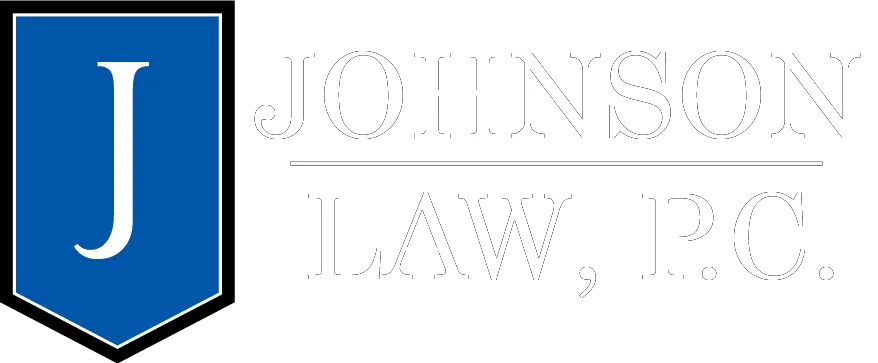BRAIN INJURY ATTORNEYS Comprehensive Care for Traumatic Brain Injury Victims We understand the life-altering impact of brain injuries and are committed to securing the resources needed for your recovery and long-term care.

What Makes Brain Injury Claims in Oregon Uniquely Challenging
Brain injury claims in Oregon present a distinct set of complexities that set them apart from more common personal injury cases. Unlike many physical injuries that have clear diagnostic markers and predictable recovery timelines, brain injuries—ranging from mild concussions to severe traumatic brain injuries (TBI)—are often invisible, evolving, and profoundly impact every facet of an individual's life.
The Invisible Nature of Brain Injuries
The core difference lies in the nature of the damage itself: a brain injury affects the very essence of a person—their cognitive abilities, emotional regulation, personality, and physical functions. This makes quantifying damages and establishing the full extent of harm significantly more challenging. Whereas a physical injury might involve straightforward medical bills and lost wages for a defined period, a brain injury can lead to permanent cognitive deficits, chronic pain, seizures, mood disorders, and a complete alteration of an individual's earning capacity and quality of life.
Unique Evidentiary Requirements
Brain injury claims in Oregon demand understanding of both medical science and the state's legal framework. One of the primary challenges is the diagnosis and documentation of the injury itself. Mild TBIs, in particular, can be difficult to diagnose immediately after an accident. Initial scans (CT, MRI) may appear normal, even when significant microscopic damage has occurred. This necessitates a focus on neuropsychological testing, detailed symptom tracking, and the testimony of treating physicians and medical experts who can connect the incident to the subsequent neurological decline.
Our Fee Promise
At Johnson Law, we charge our attorney fee only after your outstanding medical bills have been paid. This approach ensures that your physical recovery comes first, both medically and financially, providing peace of mind during a challenging time.
Types of Brain Injury Cases
Brain Injury Cases We Handle in Oregon
From mild concussions to severe traumatic brain injuries, we handle the full spectrum of neurological injury claims.
Representing clients with mild TBIs that can have lasting cognitive and emotional effects.
Complex cases involving significant neurological damage requiring lifetime care planning.
Widespread damage to brain tissue from rapid acceleration-deceleration forces.
Brain bruising from direct impact or opposing forces within the skull.
Severe cases involving objects penetrating the skull and brain tissue.
Brain damage from oxygen deprivation in medical malpractice or near-drowning cases.
Critical Evidence and Documentation for Brain Injury Cases
Unlike other personal injury cases, brain injury claims require specialized medical evidence and comprehensive documentation to prove the full extent of neurological damage and its impact on your life.
Advanced Neuroimaging and Diagnostic Testing
Brain injury cases rely heavily on sophisticated diagnostic tools that go beyond standard CT scans and MRIs. Diffusion Tensor Imaging (DTI), PET scans, and SPECT imaging can reveal microscopic damage invisible to conventional imaging. We work with neurologists and radiologists who understand these advanced techniques and can interpret subtle findings that insurance companies often overlook or dismiss.
Neuropsychological Evaluations
Comprehensive neuropsychological testing is essential for documenting cognitive deficits, memory problems, attention disorders, and executive function impairments. These evaluations provide objective data about how the brain injury affects daily functioning, work capacity, and quality of life. We collaborate with board-certified neuropsychologists who can perform baseline testing and ongoing assessments to track recovery or deterioration.
Life Care Planning and Economic Projections
Brain injuries often require decades of ongoing care, therapy, and support services. Life care planners work with our team to develop comprehensive projections for future medical needs, including rehabilitation, therapy, medication, assistive technology, and potential long-term care. These projections are crucial for securing adequate compensation for lifetime expenses.
Oregon Laws Affecting Brain Injury Cases
Understanding Oregon's specific legal requirements and protections for brain injury victims.
Modified Comparative Negligence (ORS 31.600)
Oregon's comparative negligence system allows recovery of damages even if you're partially at fault, as long as your fault doesn't exceed 50%. This is particularly important in complex brain injury cases where fault determination can be disputed.
Personal Injury Protection (PIP) Requirements
Oregon requires PIP coverage that provides immediate no-fault benefits for medical expenses and lost wages. While PIP limits are often insufficient for brain injury care, it provides crucial initial funding for treatment while pursuing full compensation.
Statute of Limitations Considerations
Oregon generally requires brain injury lawsuits to be filed within two years, but the discovery rule may apply when symptoms emerge later. Given the evolving nature of brain injuries, early legal consultation is essential to protect your rights.
Premises Liability and Safety Standards
Oregon property owners have specific duties to maintain safe premises. Brain injuries from falls or other hazards may trigger liability under ORS 105.655, requiring proof of the owner's knowledge of dangerous conditions.
Compensation and Damages in Oregon Brain Injury Cases
Brain injury compensation calculations are uniquely complex, requiring consideration of both immediate costs and lifelong needs that may span decades.
Economic Damages: Present and Future Costs
Economic damages in brain injury cases often dwarf those in other personal injury claims due to the extensive and long-term nature of care required. Past medical expenses include emergency treatment, hospitalization, surgery, rehabilitation, and therapy. Future medical costs are calculated using life care planning that projects decades of ongoing treatment, including neurological care, cognitive therapy, physical rehabilitation, medications, and potential long-term care facilities.
Lost Earning Capacity Analysis
Brain injuries frequently impact cognitive function, memory, concentration, and executive abilities essential for most careers. Vocational rehabilitation specialists and economists work together to assess how the injury affects earning potential over a lifetime. This includes analyzing pre-injury career trajectory, educational background, age, and the specific cognitive deficits caused by the brain injury to project realistic future earnings.
Non-Economic Damages: The Human Cost
The non-economic damages in brain injury cases are often substantial, reflecting the profound impact on quality of life. These include compensation for physical pain, cognitive difficulties, emotional distress, personality changes, loss of enjoyment of previously loved activities, and the frustration of cognitive limitations. Family members may also recover for loss of consortium, reflecting how brain injuries affect relationships and family dynamics.
Typical Brain Injury Damage Categories
- • Immediate medical expenses (emergency care, surgery, hospitalization)
- • Long-term medical care (neurological treatment, therapy, medication)
- • Rehabilitation costs (physical, occupational, speech, cognitive therapy)
- • Lost wages and diminished earning capacity
- • Home modifications and assistive technology
- • Personal care and attendant services
- • Pain and suffering, emotional distress
- • Loss of enjoyment of life and consortium
Why Choose Johnson Law, P.C.
Advanced Brain Injury Representation
Our attorneys have the advanced knowledge, medical connections, and dedication to help brain injury victims secure the comprehensive compensation they deserve.
Medical Expert Network
We collaborate with leading neurologists, neuropsychologists, and rehabilitation specialists to document the full extent of your brain injury and future care needs.
TBI Knowledge & Experience
Our attorneys have in-depth understanding of brain injury mechanisms, symptoms, treatment protocols, and the often invisible but life-altering effects of TBIs.
Long-Term Impact Assessment
We work with life care planners and economists to accurately project lifetime care costs, lost earnings, and other financial impacts of your brain injury.
Compassionate Representation
We recognize the emotional toll brain injuries take on victims and families, providing supportive, understanding legal guidance throughout your case.
Resource Coordination
Our team helps connect clients with appropriate medical specialists, rehabilitation programs, support groups, and other resources essential for recovery.
No Fee Until Medical Bills Paid
We charge our attorney fee only after your outstanding medical bills have been paid, putting your recovery first both physically and financially.
Cognitive Assessment Procedures in Brain Injury Cases
Understanding how cognitive evaluations document the hidden effects of brain injuries.
Cognitive assessment procedures form the backbone of brain injury legal claims, providing objective evidence of neurological damage that may not be visible on standard imaging. These comprehensive evaluations go far beyond simple bedside tests, employing sophisticated neuropsychological batteries that assess multiple domains of brain function including memory, attention, processing speed, executive function, language abilities, and visuospatial skills.
The assessment process typically begins with detailed history-taking, examining the individual's pre-injury cognitive abilities, educational background, work history, and current symptoms. Standardized tests such as the Wechsler Adult Intelligence Scale (WAIS), the California Verbal Learning Test, and the Wisconsin Card Sorting Test provide quantitative measures of cognitive function that can be compared to age and education-matched norms.
For legal purposes, these assessments must demonstrate not only current deficits but also the causational relationship between the injury and cognitive changes. Serial testing over time can show patterns of recovery or decline, while comparison to estimated pre-injury abilities (using demographic formulas or previous testing records) helps establish the magnitude of loss. Advanced computerized testing, such as ImPACT or CNS Vital Signs, can detect subtle processing speed deficits that might be missed in traditional paper-and-pencil tests.
Long-Term Care Planning for Brain Injury Victims
Comprehensive life care planning is essential for ensuring brain injury victims receive appropriate care throughout their lifetime.
Long-term care planning for brain injury survivors requires a multidisciplinary approach that addresses the complex, evolving needs that can span decades. Unlike other injuries that may heal and stabilize, brain injuries often involve ongoing neurological changes, requiring adaptive care strategies that can respond to both improvement and deterioration over time.
The planning process begins with comprehensive assessment by a certified life care planner, typically a nurse or rehabilitation counselor with advanced training in long-term care projection. This professional works closely with the treatment team, including neurologists, physiatrists, neuropsychologists, occupational therapists, and social workers, to develop a detailed roadmap of anticipated care needs from the present through life expectancy.
Key components include medical care (regular neurology visits, imaging studies, medication management), therapeutic services (physical, occupational, speech, and cognitive therapy), assistive technology (communication devices, mobility aids, home automation), home modifications (wheelchair accessibility, safety features, bathroom adaptations), and potential residential care needs. The plan must also account for the increased risk of secondary conditions such as seizures, depression, and premature aging that commonly affect brain injury survivors.
Common Mistakes in Brain Injury Cases and How to Choose the Right Attorney
Brain injury cases present unique challenges. Johnson Law, P.C. has the experience and knowledge in this complex area of law to handle your case.
Critical Mistakes That Can Destroy Your Case
One of the most damaging mistakes in brain injury cases is delaying medical treatment or failing to follow through with recommended care. Insurance companies aggressively scrutinize treatment gaps, often arguing that delayed or inconsistent treatment proves the injury wasn't serious. Similarly, minimizing symptoms or failing to report cognitive, emotional, or behavioral changes to healthcare providers can severely undermine a claim, as these subtle effects are often the most disabling aspects of brain injuries.
Why Brain Injury Cases Benefit From Experience
These cases require understanding of complex neurological concepts, familiarity with advanced diagnostic techniques, and relationships with appropriate medical experts.
What to Look for in a Brain Injury Attorney
- ✓ Demonstrated experience with brain injury cases specifically
- ✓ Established relationships with neurologists and neuropsychologists
- ✓ Understanding of life care planning and economic projections
- ✓ Track record of substantial settlements and verdicts in TBI cases
- ✓ Compassionate approach that recognizes the human impact of brain injuries
- ✓ Resources to fund extensive expert testimony and case development
Client Reviews
What Our Brain Injury Clients Say
Real experiences from clients who trusted us with their serious injury cases. We understand the profound life changes these injuries cause and fight tirelessly for the resources needed for recovery and adaptation.
Brain Injury FAQs
Frequently Asked Questions About Brain Injury Claims
Find answers to common questions about brain injury claims and how our law firm can help you secure the compensation needed for recovery and long-term care.
What constitutes a brain injury in Oregon personal injury law?
In Oregon personal injury law, a "brain injury" typically refers to any injury that causes damage to the brain's functions, often resulting from an external force. This includes Traumatic Brain Injuries (TBIs), which occur from a sudden trauma to the head, as well as Acquired Brain Injuries (ABIs) that can result from oxygen deprivation, stroke, or infection. Unlike more visible injuries, brain injuries often have invisible symptoms that can profoundly impact cognitive function, emotional well-being, and physical abilities.
What are the common causes of brain injuries in Oregon that lead to legal claims?
Brain injuries in Oregon can stem from motor vehicle accidents, falls on unsafe premises, workplace incidents, assaults, and sports-related injuries. Oregon's unique environment, with its mix of urban centers, rural roads, and outdoor recreational opportunities, contributes to the prevalence of these incidents. The underlying cause is often a failure to exercise reasonable care by another individual or entity, which forms the basis for negligence claims.
How is a brain injury diagnosed and documented for a legal claim in Oregon?
Accurate diagnosis requires medical professionals including neurologists, neurosurgeons, and neuropsychologists who use diagnostic tools like MRI, CT scans, and comprehensive cognitive tests. For legal purposes, every medical visit, test result, therapy session, and prescription must be meticulously documented. This includes emergency room reports, specialist appointments, rehabilitation records, and therapy notes that serve as primary evidence to establish the injury's existence, severity, and causation.
What types of damages can be recovered in an Oregon brain injury case?
Victims can pursue both economic and non-economic damages. Economic damages include past and future medical expenses, lost wages, and out-of-pocket costs. Non-economic damages compensate for pain and suffering, emotional distress, loss of enjoyment of life, and loss of companionship for family members. Given the long-term nature of brain injuries, future medical care and lost earning potential often constitute significant portions of these damages.
What is the statute of limitations for filing a brain injury lawsuit in Oregon?
Oregon generally requires personal injury lawsuits to be filed within two years from the date of injury. However, specific circumstances can alter this timeframe, such as if the injured person was a minor, or if Oregon's "discovery rule" applies when the injury wasn't immediately apparent. Given the strict nature of Oregon's statute of limitations, it is crucial to consult with an attorney as soon as possible after a brain injury incident.
How does Oregon's comparative negligence rule affect a brain injury claim?
Oregon follows a modified comparative negligence rule, which can significantly impact compensation if you were found partially at fault for the incident. Under Oregon Revised Statutes (ORS) 31.600, if you are 50% or less at fault, you can still recover damages, but your total award will be reduced by your percentage of fault. If you are found to be 51% or more at fault, Oregon law prohibits you from recovering any damages from the other party.
Do I need a lawyer for an Oregon brain injury claim?
While not legally required, retaining legal counsel is highly recommended due to the inherent complexities of brain injury cases. These injuries can have profound and long-lasting effects that are not immediately apparent, making their valuation challenging. Insurance companies often try to settle these claims quickly and for far less than their true value, taking advantage of an unrepresented claimant's lack of understanding of the legal process and potential future costs.
What makes brain injury cases different from other personal injury cases?
Brain injury cases are uniquely complex because the injuries often have invisible symptoms, can evolve over time, and may have permanent effects on cognition, emotion, and behavior. They typically require specialized medical experts, comprehensive neuropsychological testing, and detailed life care planning to properly value the case. Additionally, insurance companies often dispute the severity or even existence of brain injuries, making skilled legal representation essential.
Have You or a Loved One Suffered a Brain Injury?
Let Experienced Trial Lawyers Fight For You
Available 24/7 • No Fee Unless We Win
Over $50 Million Recovered for Oregon Injury Victims

